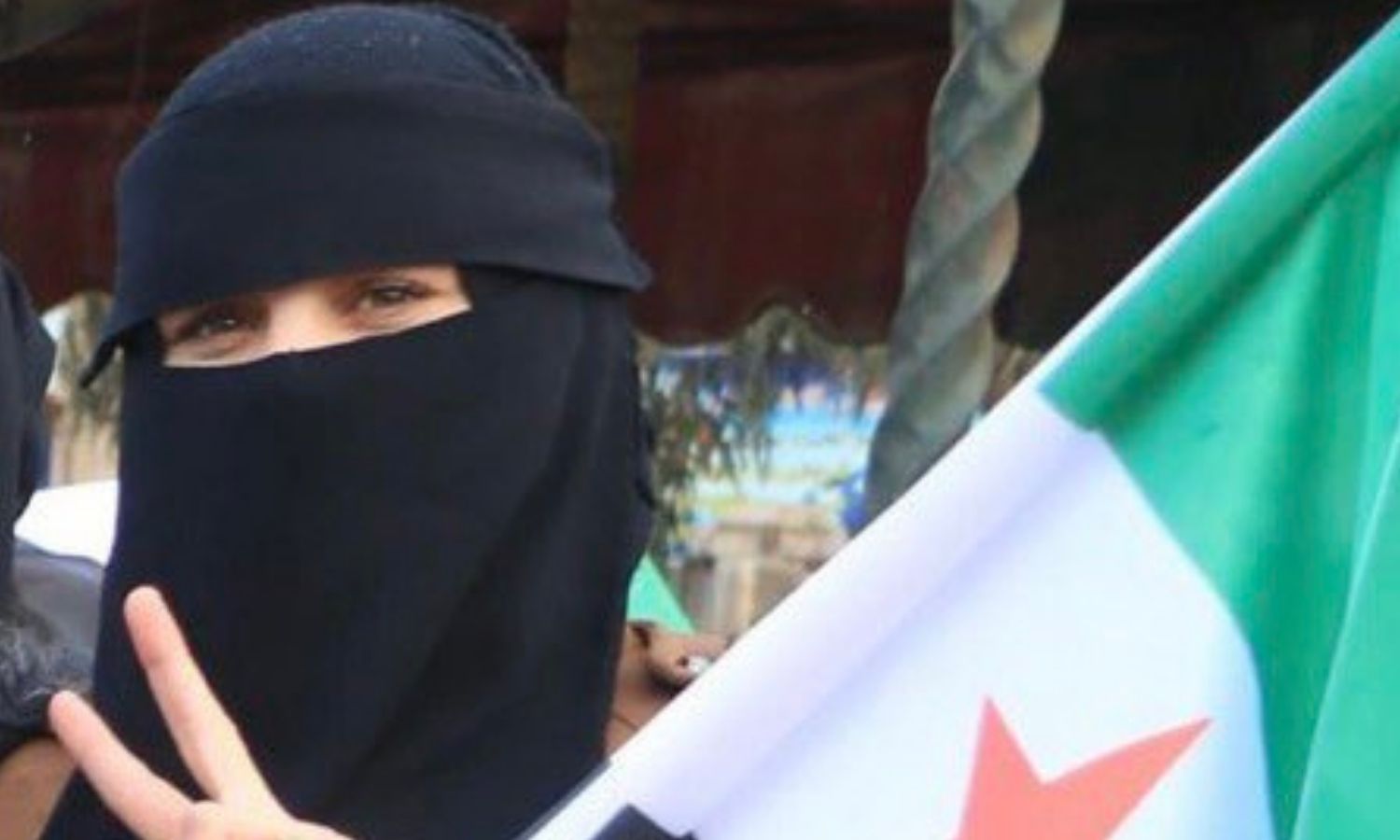The investigation into the death of activist Heba Haj Aref concluded with a statement released by the Bab Security Directorate on Monday evening. According to the statement, Heba’s death was determined to be a result of suicide, with the denial of any criminal offence having occurred.
The statement addressed public opinion, revealing that the investigations spanned over six days. During this period, Heba’s uncle, acting as her guardian due to her father’s absence from the “liberated areas,” declined the option of an autopsy, citing concerns for the deceased’s privacy and the family’s wishes. Subsequently, upon the uncle’s refusal of the autopsy, the body was released for immediate burial.
Due to the impossibility of conducting an autopsy, and upon the request of the Chief Prosecutor in the city of Bza’a, a tripartite committee was formed. This committee comprised three specialized doctors, two of whom were forensic experts, with the third being a neurologist. Their task was to conduct a thorough medical examination and issue an expert report. The report confirmed that asphyxia resulting from ischemia and cerebral hypoxia led to respiratory and cardiac arrest, indicative of suicidal hanging.
The statement explicitly dismissed the occurrence of a criminal offence, highlighting the exoneration of the 17 suspects. This conclusion was drawn after reviewing footage from 24 surveillance cameras situated in the vicinity of the activist’s residence.
Furthermore, the Bab Security Directorate briefed civil society organizations, notably the Women’s Support and Empowerment Unit, of which Heba was a member. Representatives from the Syrian Media Union were also included. They were provided with detailed results of the investigation, addressing inquiries concerning the incident and its circumstances, ensuring a neutral stance in the matter.
Unconvincing statement
The statement released by the Bab Security Directorate failed to assuage public concerns, particularly regarding the absence of an autopsy, which raised doubts about the report’s credibility.
Judge Hussein Hamada, speaking to Enab Baladi, emphasized that in cases where the circumstances surrounding a person’s death suggest criminal involvement, the investigative judge is obligated to visit the scene accompanied by their clerk and a forensic expert. At the scene, they must thoroughly examine the body and the surroundings, directing the forensic expert to determine the cause of death.
When foul play is suspected, the judge has the authority to order an autopsy without the consent of the deceased’s relatives. This procedure is crucial for uncovering the true cause of death and does not hinge upon familial approval.
Furthermore, Judge Hamada highlighted that if there are suspicions that a deceased individual, initially presumed to be a victim of crime, has been hastily buried, the judge can intervene. In such cases, the judge can order the exhumation of the body for examination by a forensic expert, again without requiring consent from the family.
These procedures are essential for ensuring thorough and impartial investigations into suspicious deaths, safeguarding justice and the integrity of the legal process.
A crime; not a suicide
According to activists closely associated with Heba, the Syrian Network for Human Rights (SNHR) faced threats from various quarters due to her activism, particularly her efforts in empowering women and her membership in the local council of Baza’a since May of the previous year.
Consequently, Heba became the target of numerous campaigns of incitement and defamation by armed factions linked to the National Army forces, as well as by civilians within her city. These relentless attacks led her to resign from her position on the local council.
The Women’s Support and Empowerment Unit expressed profound grief and sorrow at the loss of Heba, stating, “with deep sorrow and sadness, mourns its member. She was found dead in her home in the town of Bza’a.”
In a separate statement, both the National Action Movement for Syria and the Syrian Feminist Political Movement called for an impartial and comprehensive international investigation into Heba Haj Aref’s case. They urged the participation of international human rights organizations to uncover the full details of the crime, ascertain its circumstances, identify those accountable, and ensure that the perpetrators are prosecuted and brought to justice. This call aims to prevent a recurrence of similar incidents, where crimes have been concealed, and the perpetrators have escaped accountability.
This article was translated and edited by The Syrian Observer. The Syrian Observer has not verified the content of this story. Responsibility for the information and views set out in this article lies entirely with the author.


